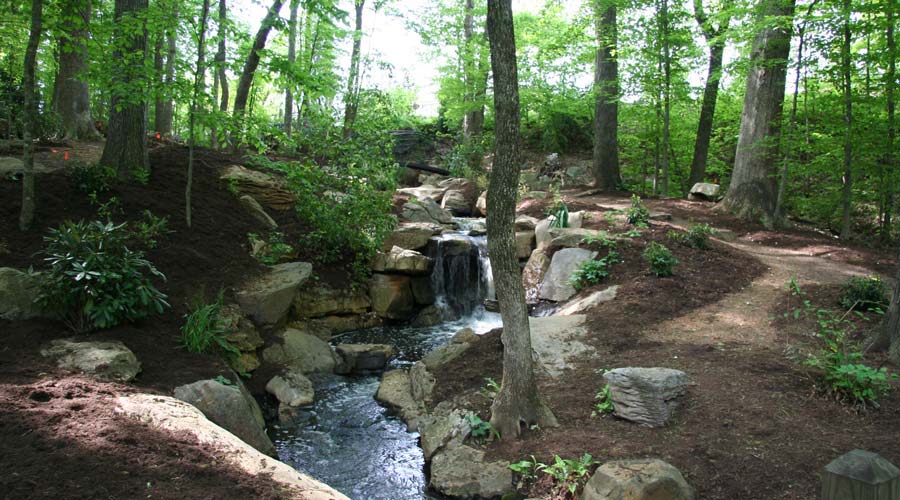The views expressed in our content reflect individual perspectives and do not represent the authoritative views of the Baha'i Faith.
Oh as I was young and easy in the mercy of his means,
Time held me green and dying
Though I sang in my chains like the sea. – “Fern Hill,” Dylan Thomas
The first thing I remember about my own childhood is an image from somewhere around three years of age. It is a single image, but not at all like a snap shot because it has dimension and I can enter it as if it were a virtual reality machine. I can look at it from various angles. This must have been a scene I saw repeatedly over time.
The place is a wooden crib, and I remember the color and texture of the wood. I remember a blue blanket, and I remember a white rabbit with pink eyes, its fur so soft that it may well have come from a real rabbit. I recall that rabbit as a dear companion, and I remember the window opposite the crib brightened by the light reflecting off the white wood siding on the house next door. I remember pine fronds moving slightly in the breeze. That’s all.
Then, I remember playing in the sandbox, making roads and houses. I remember getting whacked in the head by a mother brown thrasher when I attempted to peak into her nest in a dogwood tree. I remember running outside naked on a dare from my brother and realizing that I could outrun and out maneuver my frantic father who was desperately trying to catch me before the neighbors saw. I had to pretend to get caught because I was as embarrassed as he was, however much I relished the excited cheers from Bill: “Run, Johnny, run!”
Most powerfully I remember the woods, the wonderful magical pine forests of Starmount Forest in Greensboro, North Carolina, where we lived. But I do not wish to wax nostalgic, so let me get to the point. The Baha’i thesis of personhood—what I have been calling the “essential self”—starts at the beginning. This “self” includes distinct personality and other capacities that will be expressed through those physically inherited talents, potentialities, and pre-dispositions we may have inherited through genes or environment.

Starmount Forest in Greensboro, North Carolina
So it goes without saying (though it is well worth articulating all the same) that my brother and I throughout our later years forever tried to determine which of our more grievous flaws we could blame on our upbringing and which of our talents were inherent, as opposed to being developed by individual grit and persistent determination. What was clear from the beginning was that our personalities were always there and always extremely different—often quite antithetical. So were our physical appearances and our skill sets. But one thing among the many things we shared was our mutual assertion that everything we were or became had its roots in an incomparably wonderful childhood.
We played in the woods daily. We played house tag—a game we invented in which the person who was “it” had to tag someone as we all scampered around the various rooms and floors of the stud frame in a new house being built in the neighborhood. Naturally, this game took place in the late afternoon when the workers had left, and needless to say, it was extremely dangerous.
We played jumping off stuff—a high embankment where the leaves would pile up. I once played jumping off the garage with an umbrella as a parachute. It actually sustained me for a millisecond before it suddenly buckled back to let me experience how unforgiving the law of gravity can be. The neighborhood was filled to overflowing with children my age and older, and filled with childhood things to do. The woods, filled mostly with tall Carolina pines, had a lovely meandering creek, and all manner of trails, and secret places. I spent the better part of each day there, and the magic of that time and that place occupied my waking and my sleeping.
But that’s enough about my particularly wonderful childhood. Of course, the childhood to which I refer is nowadays such a rarity, I feel the need to allude to those images a little, especially for those who may never have had these experiences themselves.
Certainly Wordsworth is one the English poets most acclaimed for exalting the state of childhood as a source of adult spiritual and philosophical inspiration. Presumably drawing on the Platonic notion of pre-existence, Wordsworth portrays childhood as a time when we freshly emerge from the spiritual dominion.
From this metaphysical realm we emerge attuned to the spirit that animates all reality. So it is that, “trailing clouds of glory,” we must become gradually exposed to the realities of the material world of “experience”—a reality that tends over time to blur those sanctified recollections and to erode the intimacy we have with nature, a communion in which we become capable of intuiting the symbolical and metaphorical messages all nature can impart:
From the beginning to the end of his life man passes through certain periods or stages each of which is marked by certain conditions peculiar to itself. For instance during the period of childhood his conditions and requirements are characteristic of that degree of intelligence and capacity. After a time he enters the period of youth in which his former conditions and needs are superseded by new requirements applicable to the advance in his degree. His faculties of observation are broadened and deepened, his intelligent capacities are trained and awakened, the limitations and environment of childhood no longer restrict his energies and accomplishments. At last he passes out of the period of youth and enters the stage or station of maturity which necessitates another transformation and corresponding advance in his sphere of life-activity. New powers and perceptions clothe him, teaching and training commensurate with his progression occupy his mind, special bounties and bestowals descend in proportion to his increased capacities and his former period of youth and its conditions will no longer satisfy his matured view and vision. – Abdu’l-Baha, Foundations of World Unity, p. 9.
Next: The Problem of Leaving Paradise
















Comments
Sign in or create an account
Continue with Googleor